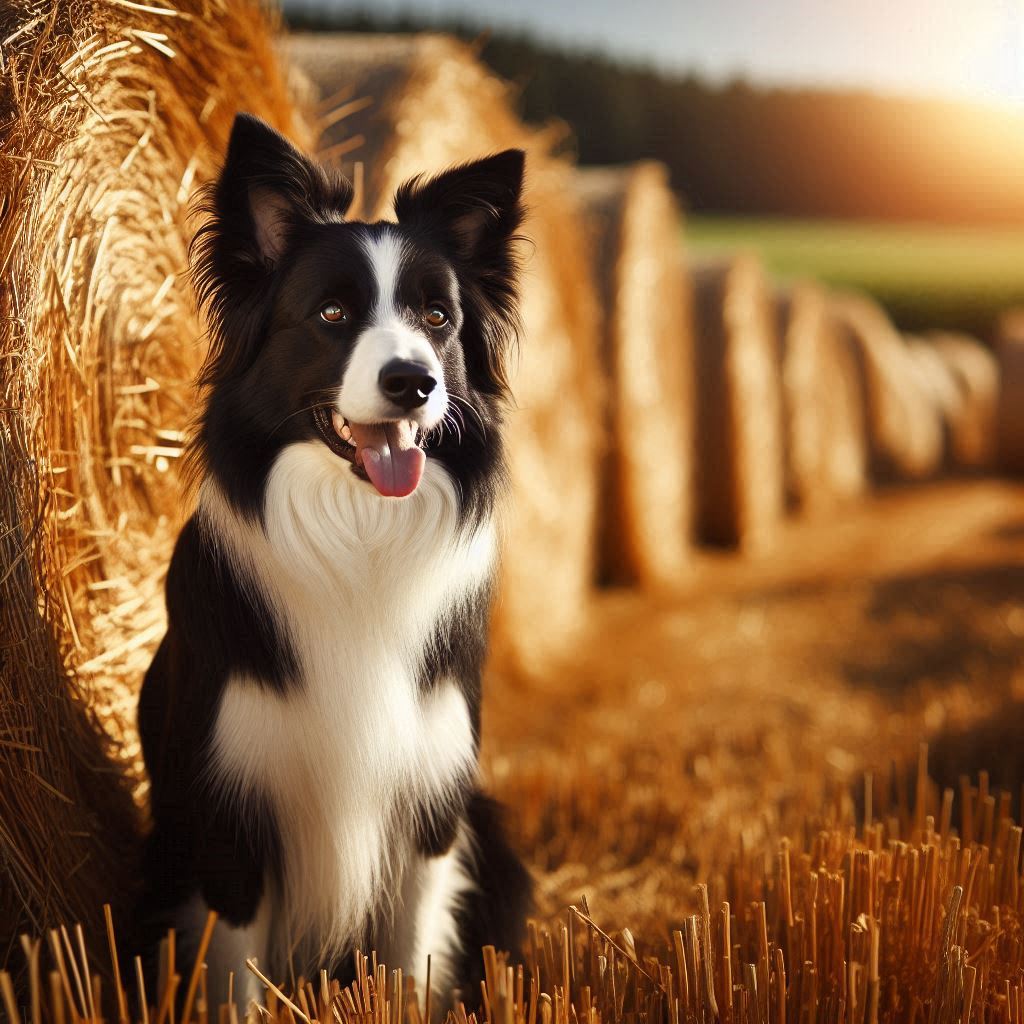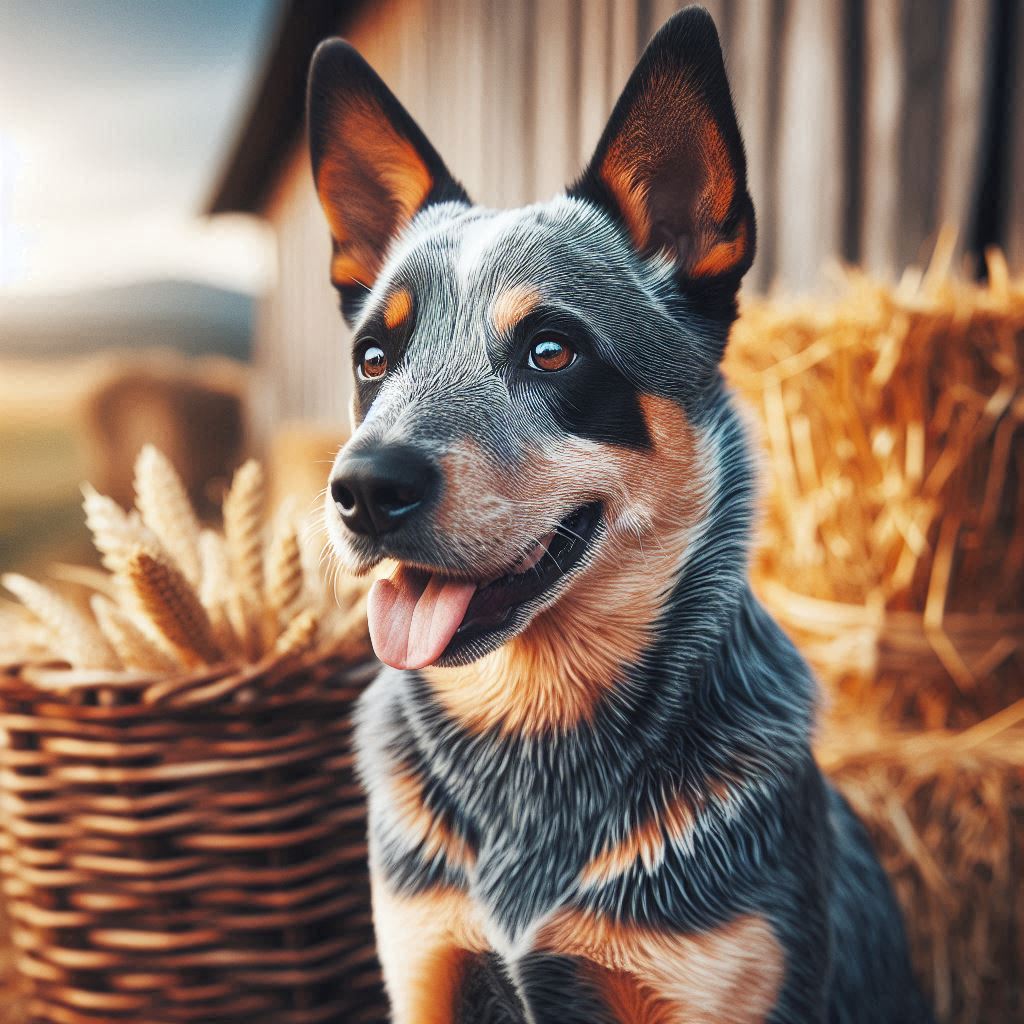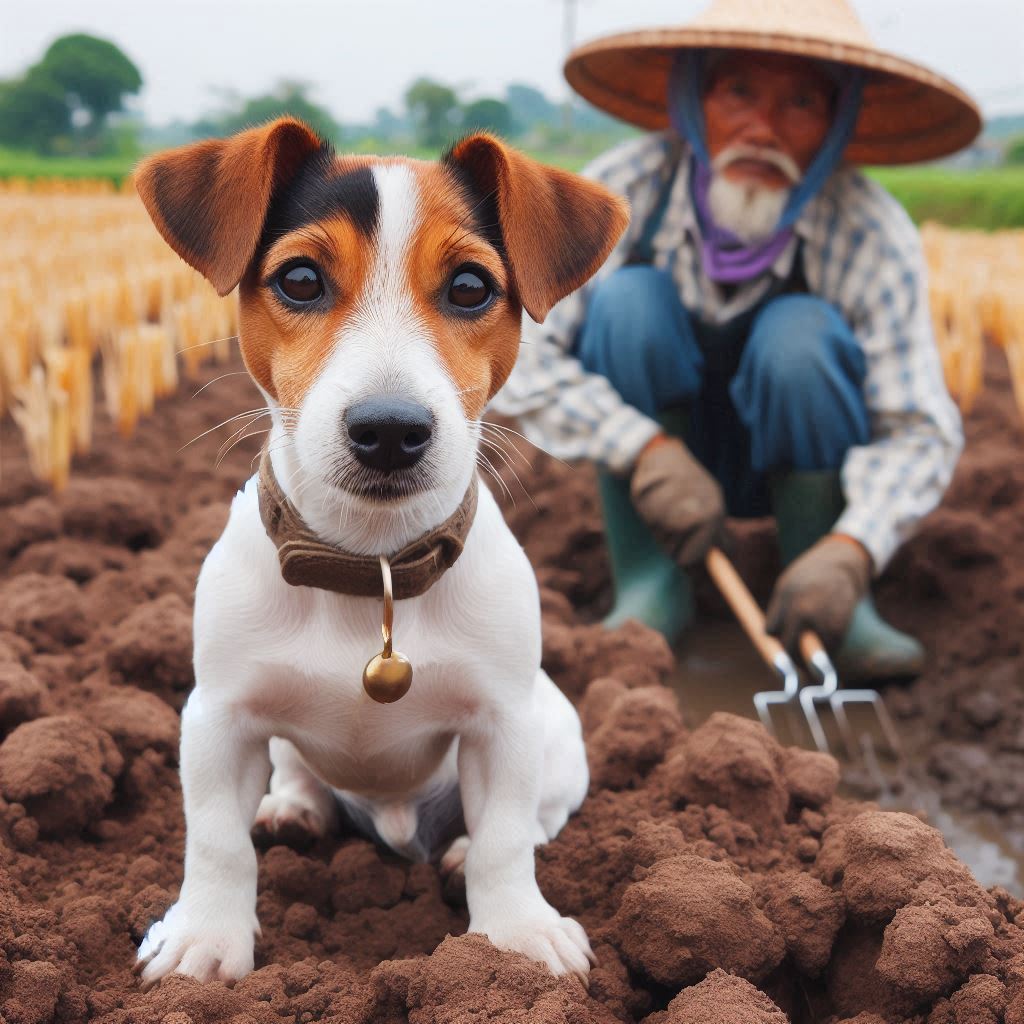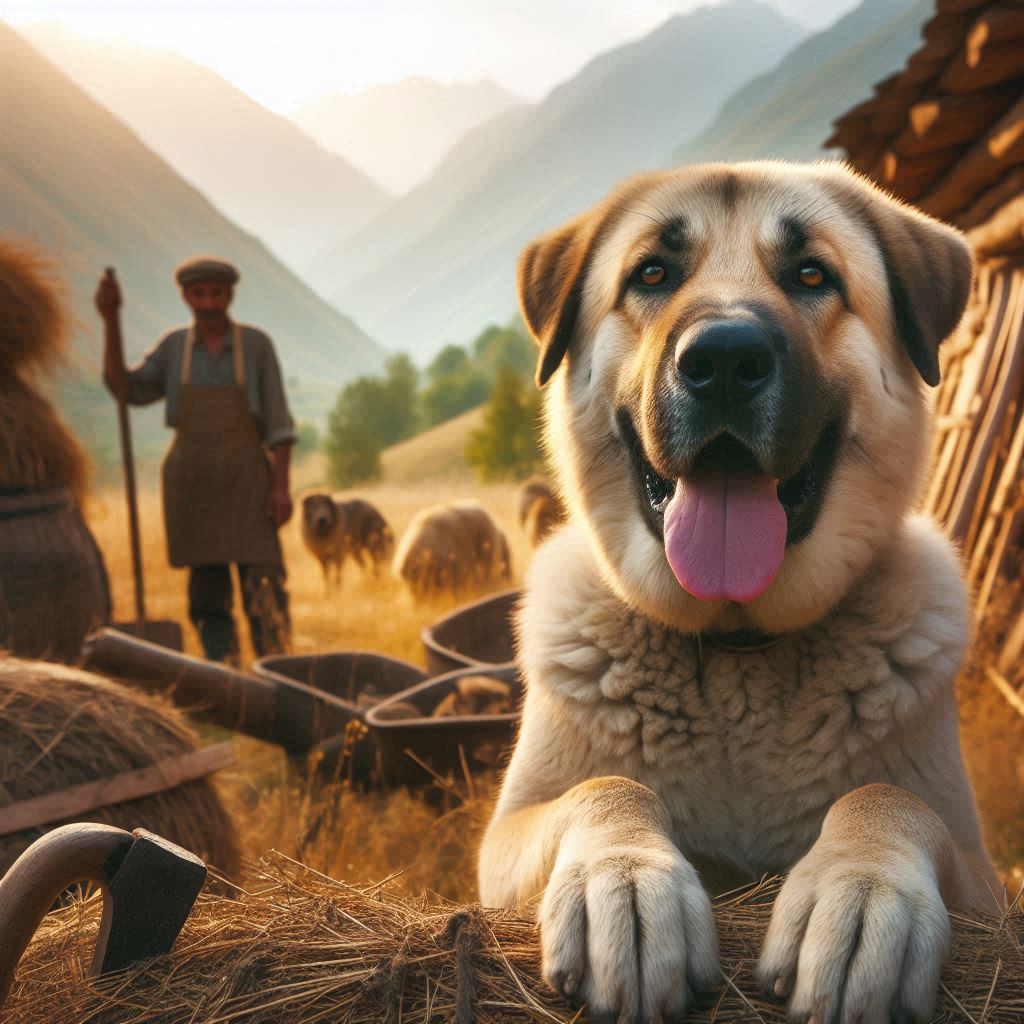Farmers have relied on dogs for centuries to help manage their livestock, guard their property, and assist with a wide range of daily tasks on the farm. These hardworking, versatile farmer’s dog breeds are renowned for their exceptional intelligence, unwavering loyalty, and remarkable stamina. Whether it’s herding a flock of sheep, guarding a herd of cattle, or patrolling the expansive fields of a sprawling agricultural operation, the farmer’s dog breeds are a vital and invaluable asset on the land. What is it that makes these remarkable farmer’s dog breeds so uniquely suited to the demands of farm life? From their innate herding instincts to their unwavering loyalty and tireless work ethic, these remarkable breeds continue to play a vital role in daily operations. Moreover, these dogs are highly adaptable and can be trained for various tasks, ensuring they remain invaluable assets in different farming environments.
1. The Role of a Farmer’s Dog
A farmer’s dog breeds are more than just a pet—it is a working partner that contributes to the success of a farm. Dog‘s responsibilities can vary based on the type of farm, livestock, and geographical location. Some of the primary roles of a farmer’s dog include:
- Herding: Managing and directing livestock such as sheep, cattle, and goats.
- Guarding: Protecting farm animals and property from predators and intruders.
- Vermin Control: Keeping the farm free from rodents and pests.
- Companionship: Providing loyalty and emotional support to the farmer and their family.
2. Traits That Make a Great Farmer’s Dog
Not all dogs are suited for farm work. The best farmer’s dog breeds share a common set of characteristics that make them ideal for rural environments:
- Intelligence: A strong ability to learn commands and tasks quickly.
- Work Ethic: High energy and drive to complete jobs without losing focus.
- Loyalty: Devoted to their owners and protective of their surroundings.
- Strength & Stamina: Built to withstand long hours of physical labor.
- Instincts: Natural herding and guarding instincts that require minimal training.
3. Best Breeds for Farm Work
Several dog breeds excel as farmer’s dogs. Here are some of the most notable ones:
a) Border Collie – The Ultimate Herding Dog
The Border Collie stands in a league of its own when it comes to herding breeds. This remarkable breed, renowned for its unmatched intelligence and agility, epitomizes the perfect herding dog. Furthermore, with a razor-sharp mind and a keen ability to solve complex problems, the Border Collie can swiftly master intricate herding techniques and commands, often outperforming other breeds in tasks requiring precision and quick thinking. Moreover, these dogs are not merely workers; they are loyal and loving members of the farm family, always eager to please and ready to tackle any challenge.
- Key Traits:
- Highly intelligent and trainable
- Excellent stamina and endurance
- Strong work ethic and determination

b) Australian Cattle Dog – The Tough and Tenacious Worker
The Australian Cattle Dog, also known as the Blue Heeler, is another top-tier herding breed. Originally developed to herd cattle over rough terrain, they are incredibly resilient and energetic. Moreover, these medium-sized dogs were bred in Australia in the 19th century by crossing native dingoes with imported herding breeds like the Collie and Dalmatian. Consequently, the result is a hardy, intelligent, and athletic dog perfectly suited for the demands of working on rugged Australian cattle farms.
- Key Traits:
- Extremely durable and hardworking
- Protective and loyal to their owners
- Requires extensive physical activity and mental stimulation

c) Great Pyrenees – The Gentle Guardian
The Great Pyrenees is known for its calm and protective nature. Renowned for their impressive size and fluffy white coats, these formidable guardians have been revered for centuries as the ultimate livestock protectors. With an innate sense of duty, they vigilantly watch over flocks, tirelessly safeguarding them from an array of predators, including wolves, coyotes, and stray dogs. Beyond their prowess as protectors, their gentle disposition and unwavering loyalty endear them to both livestock and humans alike. These qualities make the Great Pyrenees not just excellent guardians, but also beloved companions
- Key Traits:
- Strong protective instincts
- Gentle with family and livestock
- Independent and able to work without constant supervision

d) Jack Russell Terrier – The Small But Mighty Vermin Hunter
Though not a herding or guarding breed, the Jack Russell Terrier is indispensable on farms plagued by rodents. These small but mighty canines possess a fearless spirit and incredible agility, making them exceptional vermin hunters. Originally bred in England for fox hunting, their keen sense of smell and tenacious attitude allow them to track and eliminate pests with remarkable efficiency. As a result, farmers have come to rely on Jack Russells to protect their crops and property from the damage caused by rats, mice, and other vermin. Additionally, Jack Russell Terriers bring a lively and affectionate personality to farm life, forming strong bonds with their human companions.
- Key Traits:
- Energetic and highly trainable
- Strong prey drive for eliminating pests
- Compact size allows them to reach small spaces

e) Anatolian Shepherd – The Independent Guardian
The Anatolian Shepherd is an ancient livestock guardian breed, highly valued for its ability to protect farm animals from large predators. Moreover, this breed possesses an innate understanding of their role as guardians, often patrolling vast landscapes with a watchful eye and an unyielding presence. Consequently, their vigilant nature and powerful build make them indispensable assets on any farm. Additionally, their deep bond with the livestock they protect ensures that these guardians remain dedicated and effective in their duties. Their powerful build and impressive stamina enable them to confront threats such as wolves, bears, and other large predators with fearless determination. Anatolian Shepherds exhibit a calm and composed demeanor, forming strong bonds with the animals they protect and the families they serve.
- Key Traits:
- Extremely loyal and protective
- Requires minimal supervision in guarding
- Physically powerful and resilient

4. Training a Farmer’s Dog
Proper training is essential for a farmer’s dog to be effective in its role. Here are some key training tips:
- Start Early: Begin training as a puppy to establish good habits and routines.
- Consistent Commands: Use simple, clear commands to avoid confusion.
- Positive Reinforcement: Reward good behavior with treats, praise, and affection.
- Socialization: Expose the dog to livestock, other animals, and different farm environments.
- Job-Specific Training: Train according to their specific role—herding, guarding, or pest control.
5. The Lifelong Bond Between Farmers and Their Dogs
A farmer’s dog is far more than just a working animal; they evolve into a cherished companion. The bond forged through countless hours spent together in the fields ultimately cultivates a profound understanding that goes beyond mere commands and daily tasks. Consequently, many farmers develop a deep emotional connection with their dogs, often regarding them as beloved family members. This relationship is enriched by shared experiences, ranging from the quiet moments spent resting under a shady tree to the exhilarating times chasing after livestock. The loyalty and love of these dogs make them integral to both the farm’s operations and the farmer’s life.
6. Conclusion: Why Farmer’s Dogs Are So Special
Farmer’s dogs are truly remarkable for their unwavering loyalty, sharp intelligence, and tireless work ethic. These dedicated canines take on a variety of crucial roles in farm life, whether it’s skillfully herding livestock across sprawling pastures, vigilantly guarding property against intruders, or efficiently eliminating pests that threaten crops. Their remarkable adaptability allows them to excel in diverse tasks and environments, ultimately making them indispensable allies on any farm. Furthermore, by carefully selecting the right breed, which aligns with the specific needs of the farm, and by providing comprehensive training, farmers can cultivate a strong bond with their dogs. Consequently, this relationship ensures that these loyal companions will prove to be reliable partners, offering support and assistance for many fruitful years to come.
